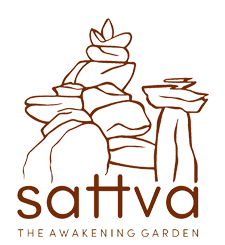What is the Abhyangam?
Abhyanga is a method of Ayurvedic massage that uses warm, healing oils specific to your dosha type.
Self-administered or administered by a therapist, it is an option. The Sanskrit term “abhyanga” means “massaging the limbs” or “glowing body,” and is derived from “abhi,” meaning “into” or “glow,” and “anga,” meaning “limb.” Regular abhyanga massage can improve overall health and longevity. It is also a great way to connect with your body and show self-care, particularly for those with a vata dosha imbalance.
![]()
What is the process of Abhyangam?
It typically begins with the therapist heating a small amount of oil and applying it to the body with long, flowing strokes.
The therapist may use various techniques, including kneading, pressing, and tapping, to manipulate the tissues and stimulate circulation. The massage is usually performed on a massage table, but it can also be done on a mat on the floor. Depending on the individual’s needs and preferences, the therapist may use various oils. Common oils used in Abhyangam include sesame oil, coconut oil, and olive oil.
During the massage, the therapist may focus on specific parts of the body, such as the head, neck, back, and feet. The therapist may also use specific techniques to address any imbalances or issues in the body. The massage typically lasts 60-90 minutes, although the length may vary depending on the individual’s needs and preferences. After the massage, the oil is typically left on the skin for some time, allowing it to be absorbed into the tissues. The therapist may then recommend a warm shower or bath to wash off the oil.
Who is eligible for the Abhyangam?
Many people find abhyangam to be safe, and it can be beneficial for many people. People who want to reduce stress and promote relaxation, improve circulation, and maintain overall wellness often recommend it.
Who is not eligible for the Abhyangam?
Abhyangam may not be suitable for everyone. Some people who may not be able to receive the massage include those who are experiencing:
- Acute inflammation or fever
- Skin infections
- Acute pain or discomfort
- First trimester of pregnancy
If you have any concerns about whether Abhyangam is appropriate for you, it is important to consult with a qualified healthcare professional before receiving the massage. They will be able to assess your individual situation and determine whether the massage is safe and appropriate for you.
It is also important to let the therapist know if you have any medical conditions or allergies that may be relevant to the massage. This will help them to tailor the treatment to your needs and ensure that you receive the most appropriate care.
What are the post-treatment guidelines?
After an Abhyangam massage, there are a few things you can do to help ensure that you get the most out of the treatment and to maintain the benefits of the massage. These may include:
- Drink plenty of water: Drinking water can help to remove toxins out of the body and help to rehydrate the tissues.
-
Showers and baths should be avoided for at least an hour: This will allow the oil to penetrate the skin and tissues.
- Avoid strenuous activity: It is best to avoid engaging in any heavy physical activity for a few hours after the massage to allow the body time to rest and recover.
- Wear loose, comfortable clothing: Tight clothing may irritate the skin, so it is best to wear loose, comfortable clothing after the massage.
- Avoid consuming alcohol or heavy meals: These can interfere with the benefits of the massage and may cause discomfort. It is best to stick to light meals and avoid alcohol for a few hours after the massage.
- Follow any additional recommendations from the therapist: The therapist may have specific recommendations for you based on your individual needs and condition. It is important to follow these recommendations to help ensure the best possible outcome from the massage.
Key Highlights
Safety: Very High
Effectiveness: High
Timeliness: Very High
Relative risk: Very Low
Side Effects: Very Low
Time for Recovery: Very High
You can contact Sattva resort #1 ayurveda wellness center in kerala.
